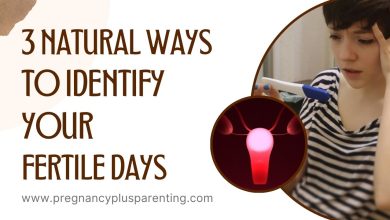Navigating Your First Trimester: Everything You Need to Know
This comprehensive guide should help you navigate the first trimester with confidence and clarity, ensuring both you and your baby have a healthy and happy start to your pregnancy.
Congratulations on your pregnancy! The first trimester is an exciting time as you begin your journey into motherhood. However, it’s also a period of significant change, both physically and emotionally. Understanding what to expect during these first three months can help you feel more confident and prepared as you navigate this crucial stage of your pregnancy.
In this comprehensive guide, we’ll cover everything you need to know about the first trimester, including key developmental milestones, what you should be doing, when to schedule doctor’s appointments, frequently asked questions, and common symptoms.
What is the First Trimester?
The first trimester spans from the first day of your last menstrual period (LMP) to the end of week 12. It’s the foundational period where your baby’s major organs and body systems begin to develop. Although your baby is still very small during this time, the changes happening inside your body are monumental.
Developmental Milestones in the First Trimester
Understanding the developmental milestones of the first trimester can help you appreciate the incredible changes taking place within your body. Here’s a week-by-week overview:
Weeks 1-4: Conception and Implantation
- Week 1: Technically, the first week of pregnancy begins with the first day of your last menstrual period. Conception hasn’t occurred yet, but your body is preparing for it.
- Week 2: Ovulation typically occurs around this time. If sperm successfully fertilizes the egg, conception takes place.
- Week 3: The fertilized egg, now called a zygote, travels down the fallopian tube and begins dividing into more cells. By the end of this week, the zygote becomes a blastocyst and implants itself into the uterine lining.
- Week 4: Once implanted, the blastocyst starts developing into an embryo. The placenta, which will nourish your baby throughout the pregnancy, begins to form.
Weeks 5-8: Embryo Development
- Week 5: Your baby’s heart starts to beat around this time, and the basic structures of the brain, spinal cord, and major organs begin to form. The embryo is now about the size of a sesame seed.
- Week 6: Facial features, such as the eyes and nose, start to develop. The neural tube, which will become the brain and spinal cord, closes.
- Week 7: The limb buds that will become your baby’s arms and legs are starting to form. The heart now has four chambers, and blood begins to circulate.
- Week 8: All major organs have started to develop, and your baby’s brain is growing rapidly. The embryo is about the size of a raspberry.
Weeks 9-12: Transition to Fetus
- Week 9: Your baby is now officially referred to as a fetus. The head is large compared to the rest of the body, but the face is becoming more defined, with the formation of eyelids and earlobes.
- Week 10: The fingers and toes are no longer webbed, and your baby can bend its elbows. The kidneys start producing urine, which will eventually be part of the amniotic fluid.
- Week 11: Your baby is developing rapidly and is now about the size of a lime. The bones are hardening, and hair follicles and nail beds are forming.
- Week 12: The end of the first trimester marks a significant milestone as the fetus’s major organs are fully developed. The fetus now weighs about half an ounce and measures approximately 2.5 inches long.
What You Should Be Doing During the First Trimester
The first trimester is a time of adjustment, and there are several important steps you should take to ensure a healthy pregnancy:
1. Schedule Your First Prenatal Appointment
As soon as you find out you’re pregnant, schedule your first prenatal visit. This typically occurs between weeks 8 and 12. During this appointment, your healthcare provider will:
- Confirm your pregnancy with a blood test or ultrasound.
- Estimate your due date based on the first day of your last menstrual period (LMP).
- Review your medical history, including any pre-existing conditions or medications.
- Discuss prenatal vitamins, particularly the importance of folic acid.
- Answer any questions or concerns you may have.
2. Start Taking Prenatal Vitamins
Prenatal vitamins are crucial during the first trimester, as they help ensure you’re getting the necessary nutrients to support your baby’s development. Key nutrients include:
- Folic Acid: Essential for preventing neural tube defects.
- Iron: Supports the increased blood volume during pregnancy and helps prevent anemia.
- Calcium: Important for developing your baby’s bones and teeth.
- Vitamin D: Aids in calcium absorption and supports immune function.
3. Focus on a Healthy Diet
Eating a balanced diet is essential for both your health and your baby’s development. Focus on nutrient-rich foods, including:
- Fruits and Vegetables: Provide essential vitamins, minerals, and fiber.
- Whole Grains: Offer complex carbohydrates and fiber, helping to maintain energy levels and digestive health.
- Lean Proteins: Important for your baby’s growth and the development of tissues and organs.
- Dairy Products: Provide calcium and protein to support bone development.
4. Stay Hydrated
Staying hydrated is vital during pregnancy. Aim to drink at least eight 8-ounce glasses of water a day. Proper hydration helps maintain your blood volume, supports kidney function, and can help reduce the risk of urinary tract infections (UTIs).
5. Get Plenty of Rest
Fatigue is a common symptom during the first trimester due to the hormonal changes and the physical demands of early pregnancy. Listen to your body and rest when needed. Prioritize sleep and consider taking short naps if you’re feeling especially tired.
6. Exercise Regularly
Regular, moderate exercise can help improve your mood, increase energy levels, and promote better sleep. Safe activities during the first trimester include:
- Walking: A gentle way to stay active and maintain cardiovascular health.
- Prenatal Yoga: Helps improve flexibility, reduce stress, and prepare your body for childbirth.
- Swimming: A low-impact exercise that’s easy on the joints and provides full-body benefits.
Before starting any new exercise regimen, consult your healthcare provider to ensure it’s safe for you and your baby.
7. Avoid Harmful Substances
Certain substances can be harmful to your developing baby. It’s important to avoid:
- Alcohol: Linked to fetal alcohol spectrum disorders (FASD), which can cause developmental delays and birth defects.
- Tobacco: Increases the risk of preterm birth, low birth weight, and developmental issues.
- Caffeine: High levels of caffeine can increase the risk of miscarriage, so limit your intake to 200 mg per day (about one 12-ounce cup of coffee).
- Certain Medications: Some over-the-counter and prescription medications may not be safe during pregnancy. Always consult your healthcare provider before taking any new medications.
Common Symptoms During the First Trimester
The first trimester brings a variety of symptoms, many of which are due to the hormonal changes occurring in your body. While every woman’s experience is unique, here are some common symptoms you might encounter:
1. Morning Sickness
Morning sickness, characterized by nausea and vomiting, affects many pregnant women during the first trimester. Despite its name, morning sickness can occur at any time of day. While the exact cause is unknown, it’s believed to be related to the increased levels of pregnancy hormones like hCG (human chorionic gonadotropin).
Tips to Manage Morning Sickness:
- Eat small, frequent meals throughout the day.
- Avoid strong odors and foods that trigger nausea.
- Stay hydrated by sipping water, ginger tea, or clear broth.
- Keep crackers or dry toast by your bed to eat before getting up in the morning.
If you experience severe nausea and vomiting, known as hyperemesis gravidarum, consult your healthcare provider, as it may require medical intervention.
2. Fatigue
Feeling unusually tired is one of the most common symptoms during the first trimester. Your body is working hard to support your growing baby, and the increased production of progesterone can make you feel drowsy.
Tips to Combat Fatigue:
- Get plenty of rest and prioritize sleep.
- Incorporate short naps into your daily routine.
- Eat a balanced diet to maintain energy levels.
- Engage in light exercise, like walking, to boost your energy.
3. Breast Tenderness
Hormonal changes can cause your breasts to become sore, tender, or swollen. This is your body’s way of preparing for breastfeeding.
Tips to Ease Breast Tenderness:
- Wear a supportive bra, even at night, to reduce discomfort.
- Opt for soft, non-underwire bras for additional comfort.
- Apply warm compresses to ease pain and tenderness.
4. Frequent Urination
Increased blood flow to your pelvic area and the growing uterus pressing on your bladder can lead to more frequent trips to the bathroom.
Tips to Manage Frequent Urination:
- Avoid drinking large amounts of fluids right before bed.
- Lean forward while urinating to fully empty your bladder.
- Practice Kegel exercises to strengthen your pelvic floor muscles.
5. Food Cravings and Aversions
Many women experience food cravings or aversions during the first trimester. You may suddenly crave certain foods or find that foods you once loved now make you feel nauseous.
Tips for Managing Cravings and Aversions:
- Listen to your body and eat a balanced diet.
- Opt for healthy alternatives to satisfy cravings.
- Avoid foods that trigger nausea, even if they’re healthy options.
6. Mood Swings
Hormonal fluctuations, coupled with the physical and emotional changes of pregnancy, can lead to mood swings. You may find yourself feeling happy one moment and overwhelmed the next.
Tips to Manage Mood Swings:
- Practice stress-relief techniques, such as deep breathing, meditation, or prenatal yoga.
- Talk to your partner or a trusted friend about your feelings.
- Take time for yourself to relax and engage in activities you enjoy.
Doctor’s Appointments During the First Trimester
Your first prenatal appointment is a significant milestone, and it sets the stage for your ongoing care throughout pregnancy. Here’s what to expect:
First Prenatal Visit (Weeks 8-12)
During your first prenatal visit, your healthcare provider will:
- Confirm Pregnancy: A urine or blood test may be used to confirm your pregnancy.
- Estimate Due Date: Your provider will calculate your due date based on the first day of your last menstrual period (LMP).
- Medical History: Expect a thorough review of your medical history, including any previous pregnancies, chronic conditions, medications, and lifestyle factors.
- Physical Exam: You’ll undergo a physical exam, including measuring your weight, blood pressure, and possibly a pelvic exam.
- Ultrasound: An early ultrasound may be performed to confirm the pregnancy, check for a heartbeat, and determine the number of fetuses (in the case of twins or multiples).
- Lab Tests: Blood and urine tests will be conducted to check your blood type, Rh factor, hemoglobin levels, and to screen for infections and sexually transmitted diseases (STDs).
- Discuss Prenatal Care: Your provider will discuss what to expect in terms of prenatal care, including scheduling future appointments, dietary recommendations, and lifestyle adjustments.
Frequently Asked Questions (FAQs) About the First Trimester
1. Is it normal to experience cramping during the first trimester?
Mild cramping is common during the first trimester and is usually due to the uterus expanding as it accommodates the growing embryo. However, if you experience severe pain or bleeding, contact your healthcare provider immediately, as it could be a sign of miscarriage or ectopic pregnancy.
2. Can I continue to exercise during the first trimester?
Yes, exercise is generally safe during the first trimester as long as you have no pregnancy complications. Focus on moderate activities like walking, swimming, or prenatal yoga. Always consult your healthcare provider before starting any new exercise routine.
3. What should I avoid during the first trimester?
During the first trimester, it’s important to avoid:
- Alcohol and tobacco
- Certain medications and supplements not approved by your healthcare provider
- Raw or undercooked meat and eggs
- Unpasteurized dairy products
- High-mercury fish, such as shark, swordfish, and king mackerel
4. How can I relieve constipation during the first trimester?
Constipation is a common issue due to the increased production of progesterone, which relaxes the digestive tract. To relieve constipation:
- Eat a high-fiber diet, including fruits, vegetables, and whole grains.
- Drink plenty of water.
- Stay active with regular, gentle exercise.
- Consult your healthcare provider before taking any over-the-counter laxatives.
5. When will my morning sickness go away?
Morning sickness usually peaks around weeks 8-10 and typically subsides by the end of the first trimester. However, some women may experience nausea throughout their pregnancy. If morning sickness is severe or persistent, speak with your healthcare provider.
Final Thoughts
The first trimester is a period of significant change and adjustment. While it can be overwhelming at times, understanding what to expect and taking proactive steps to care for yourself and your baby can help make this journey smoother and more enjoyable. Remember to prioritize your health, stay informed, and reach out to your healthcare provider with any concerns or questions. Each pregnancy is unique, so trust your instincts and embrace this remarkable journey into motherhood.






